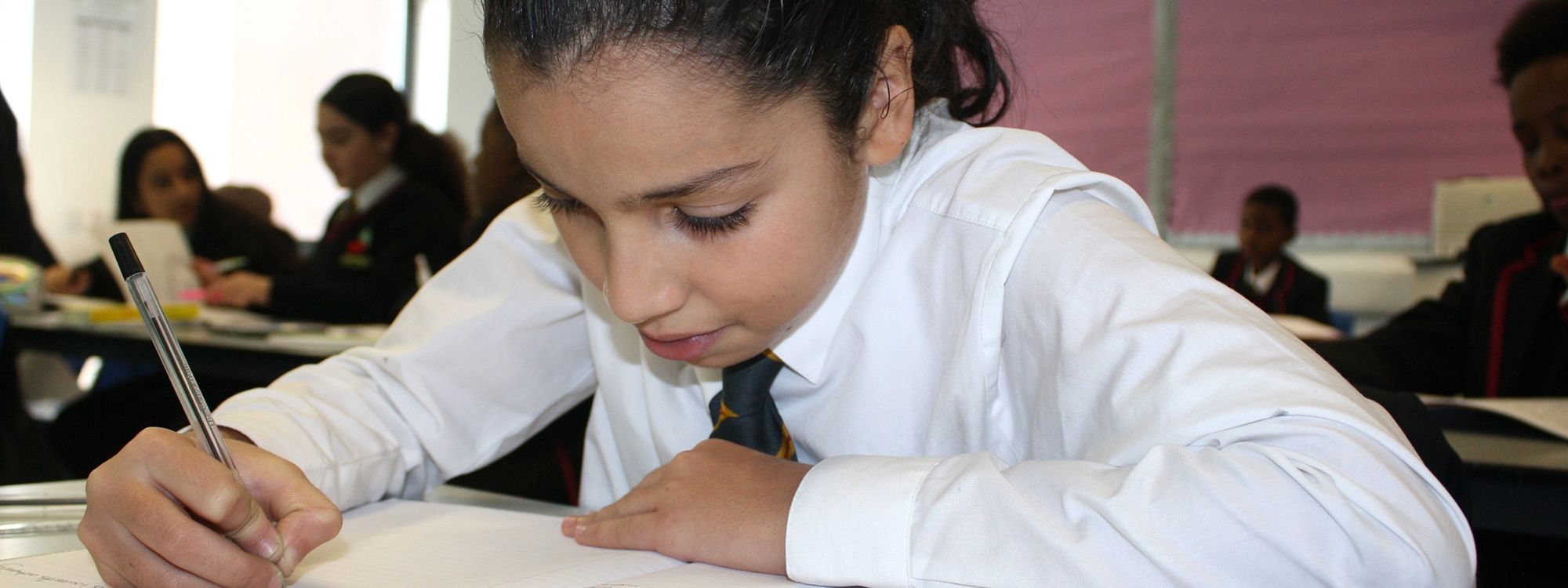- Home
- Curriculum
- Home Learning
Home Learning
All Home Learning activities for your child are set in GOOGLE CLASSROOMS. Each subject has its own GOOGLE CLASSROOM where work is set. This also contains work for students who may be isolating. Students can log onto GOOGLE CLASSROOM from home using https://classroom.google.com.
If your child does not have access to a computer or laptop at home, please contact their Pastoral Officer, who will help to arrange a laptop loan for them.
If parents wish to see what Home Learning has been set for their child, they can use Satchel:one, which parents can log into online or via an app. This will show you what Home Learning tasks your child has been set each day and when each piece of work is due. It is also useful to see your child’s behaviour, rewards, attendance and punctuality.
If you are experiencing any problems with SATCHEL:ONE please contact satchel@lilianbaylis.com
If you have any questions regarding your child's HL, please contact your child's year group Achievement Coordinator. Their details are below:
Y7 Achievement Coordinator Cherelle Morris: cherelle.morris@lilianbaylis.com
Y8 Achievement Coordinator Jack Bradford: jack.bradford@lilianbaylis.com
Y9 Achievement Coordinator Carly Holness: carly.holness1@lilianbaylis.com
Y10 Achievement Coordinator Henry Niblett: henry.niblett@lilianbaylis.com
Y11 Achievement Coordinator Moji Odusanya: moji.odusanya@lilianbaylis.com
Y12 AChievement Coordinator Lubna Begum: lubna.begum@lilianbaylis.com
Y13 Achievement Coordinator Max Toynbee: max.toynbee@lilianbaylis.com
Maths Home Learning
Every week, ALL students are expected to complete to 100% their SPARX which can be found on the homepage - https://sparxmaths.com/
Students can log in using the school email address or via Google sign in
Geography Home Learning:
https://app.senecalearning.com/teacher/classes
All Geography Home Learning is set using Seneca, all students will be sent a link via Google Classroom to join the Seneca Classroom where the questions will be set. The expectation is that all Students should aim to pass the Seneca questions at 80% or above.
Spanish Home Learning:
Every week, students are expected to complete to 100% their VocabExpress assignment which can be found on the homepage - https://www.vocabexpress.com/home/
Log in details have been shared with students and can also be found in the Google Classrooms.
Science Home Learning:
https://app.senecalearning.com/teacher/classes
KS3 Complete up to 10 tasks a week at a minimum of 80%
KS4 Complete up to 10 tasks a week at a minimum of 80% and an exam question.
English Home Learning:
KS3 Complete at least 5 reading lessons and one vocabulary lesson on Reading Plus every week. You must aim for at least 80% comprehension.
Some of Home Learning activities for English in Years 10 & 11 is on Educake https://www.educake.co.uk/my-educake
HOME LEARNING IS IMPORTANT FOR A NUMBER OF REASONS:
- It encourages students to develop skills of discovery, investigation and independent learning
- It enables students to build on and develop their learning
- It helps to prepare work for a forthcoming lesson
- It helps students to use their initiative and think independently
- It enables students to assess their own progress
Please support us in ensuring that home learning is done conscientiously. Students record home learning in their planners each day. Please check and sign the planner every week before it is countersigned by the form tutor. It is school policy to set regular home learning in all years.
HOME LEARNING Q AND A
WHAT SORT OF HOME LEARNING WILL MY CHILD BE SET?
Types of home learning set may include:
- Revision: looking back over class work and learning it; preparing for a test or examination
- Written tasks: set by the teacher and completed entirely for home learning
- Project work: usually planned and completed over a period of time, including work done in school and at home
- Reading: continuing a text started at school or reading independently from a wide range of fiction and non-fiction
- Research: where information needs to be gathered from different sources
- Finishing class work started during a lesson
WHEN SHOULD HOME LEARNING BE DONE?
Students should:
- Plan home learning or study at regular times each evening and at weekends. Several shorter sessions are better than working late on a Sunday night
- Commit themselves to doing regular home learning every evening
- Use their planners to plan the work to be done each night
WHERE AND HOW SHOULD MY CHILD STUDY?
All individuals have their own preferences, but here are some general tips:
- Choose a part of the house or flat with a comfortable temperature
- Children work best on a flat surface, preferably a table or desk
- Make sure the area is well lit, with a comfortable chair
- Keep distractions like TV or dogs well away, or even parents sometimes!
- Many children claim they "need music on" to study better. If the work gets done, music may well help
- Parents should encourage a "home learning routine"; this will help ensure good work, and avoid arguments
- Remind your child about the Home Learning Clubs, run by the school
- Your child may complete home learning in the School Library. It is open from 8.00 to 8.30 every morning for this. The Home learning Zone is open every lunchtime, and until 4.15 Monday to Friday each week for this purpose
- If there are difficulties with home learning, make sure you contact your child's Form Tutor so that we can see how we can help
- Students have full Computer access in the Flexible Learning Centres on every floor. They are available Monday to Friday as follows: 7.30 - 8.30; Break; Lunch; 3.05 - 5.30
HOW CAN I HELP MY CHILD WITH HOME LEARNING?
In particular, we would be pleased if parents could:
- Encourage high standards of handwriting, spelling and presentation
- Ask your child to check the accuracy of their written work; this should become routine
- Test your child to see if s/he has learned what has been set
- Listen to him/her reading what s/he has written; even a few minutes at the end of the day helps
- Ask him/her to explain what s/he has been studying
- Ensure that they complete home learning by the set date
- Listen to your child read every day and reward them often
ANYTHING ELSE I SHOULD KNOW ABOUT HOME LEARNING?
Just a few things:
- Let us know if you are concerned about the home learning programme. We would like to know if there are problems.
- All students should belong to the public library nearest where they live. This will help with reading and researching.
- We want all students to have good literacy skills. Please encourage as much reading of as wide a range of fiction and non-fiction as possible. Please ensure your child carries a reading book of their own to school every day.



